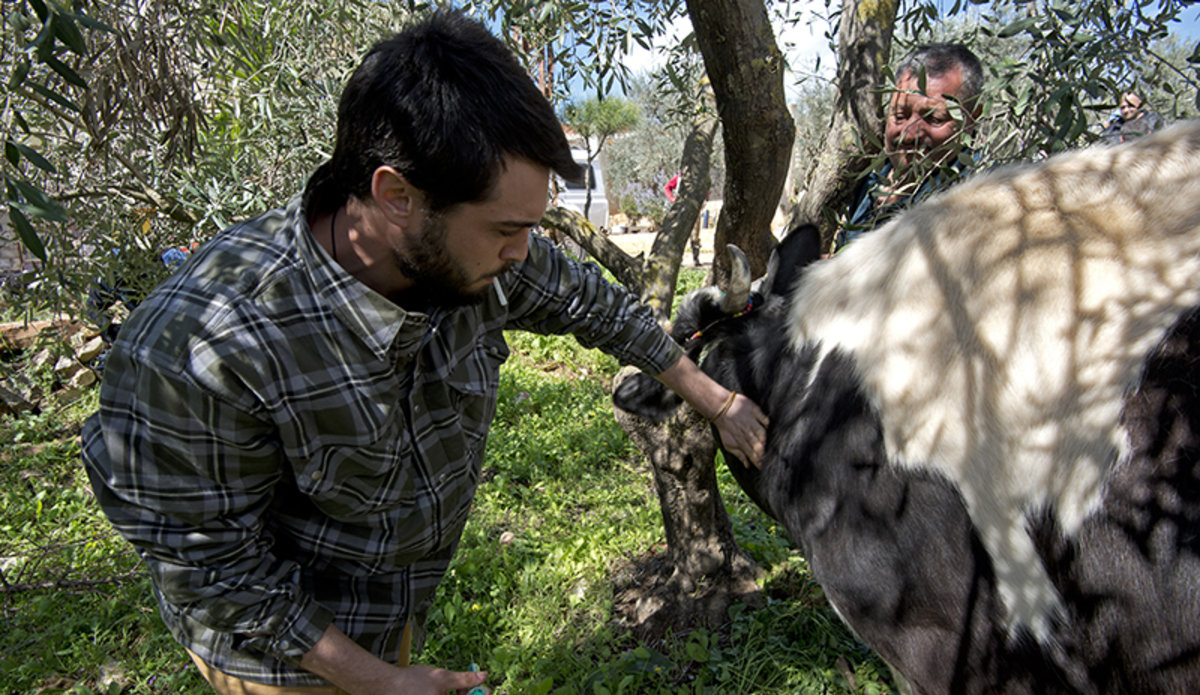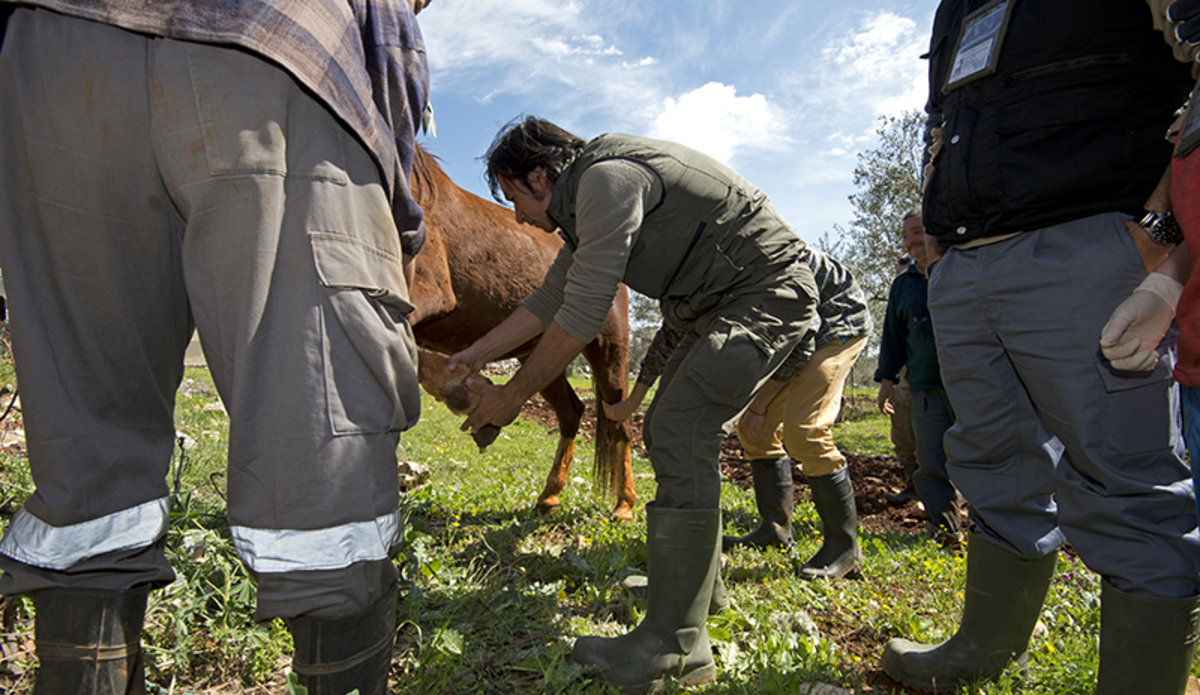Spanish vets treat 20,000 cattle in 10 days
The Spanish vets are fortunate with their timing. In late February the weather in South East Lebanon can be very changeable, but these vets are able to work out in the field in relatively dry conditions.
The ten vets have come from three Spanish Universities to provide advice, on the spot treatments and vaccinations. Ghaleb Ahmad Hussein has a small cattle farm in Blida. He show the vets each animal and discusses with them any concerns he has. One cow is having trouble with her milk, the vet quickly diagnoses the problem and they give the cow an injection. “My cow had an infection and the vets gave me antibiotics, disinfectants and other medicines,” Hussein says.
Like Hussein’s farm, many of the locations the vets visit are remote. Ordinarily the farmers have to drive their animals an hour to the nearest big town in order for them to be treated. Santiago Vega, Dean of Veterinary Science at University CEU in Spain, watches as one of his students carefully performs another vaccination. “For us it’s a great experience. During these 10 days we get to see this country and their beautiful people. The farmers get a chance to have their animals treated altruistically by our vets. With the technology we have we are able to diagnose these diseases on the spot, even though these are things you cannot see.”
In cooperation with UNIFIL and the Lebanese department of Agriculture, the vets visit hundreds of individual farms across Sector East. Major Alfonso Ruiz De Ona Rodriguez, one of the UNIFIL coordinators of this project, explains: “One of the main incomes of Sector East’s population is cattle raising, so this kind of project is going to directly support the population and is going to develop even more the environment"
The Spanish vets work to full and relentless schedule, but the dividends pay off. By the end of the project they have treated 20,000 head of cattle with 20,000 Euros worth of donated medicine.
----------------------------------------------------------------
Article: Aoibheann O’Sullivan
Video Editor: Aoibheann O’Sullivan, Suzane Badereddine
Video Camera: Aoibheann O’Sullivan
Photo: Pascual Gorriz Marcos
----------------------------------------------------------------
 UN
UN United Nations Peacekeeping
United Nations Peacekeeping











